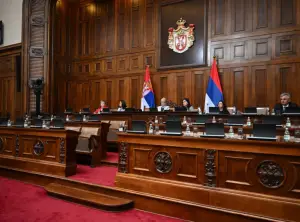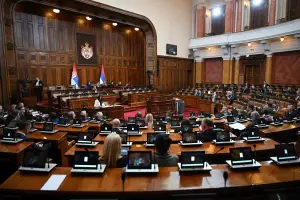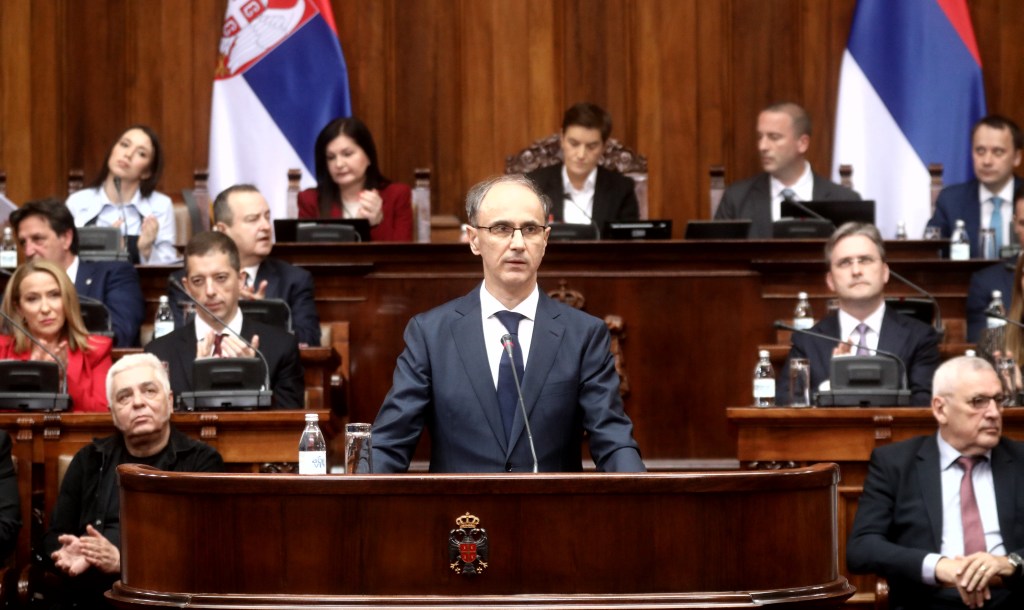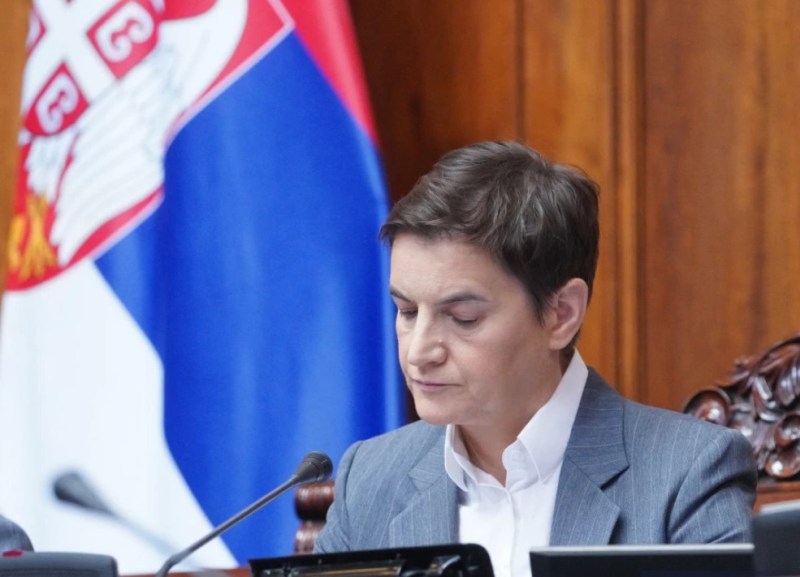- Serbia
Get to know Serbia
- Citizens
Culture and science
Health services
Pension and disability insurance
- Business
Employment
Economy
- Media
- Government
- Contact
Keep in touch
Contact form
Back
Keepin touch
Whether you have a question, comment, suggestion or any problem in the purview of the government, send us your message and we will try to respond as soon as possible. If your problem is not in our purview, we will forward your message to the relevant institution.
Q:
A:
Malovic elaborates on amnesty bill
Belgrade,
9 March 2010
Minister of Justice Snezana Malovic stated today that around 5,000 proceedings are under way for criminal acts for which amnesty has been proposed, adding that the cases are mostly led against Serbian citizens living abroad.
Elaborating on the amnesty bill to Serbian MPs, Malovic said that according to current data, there are around 140,000 conscripts abroad, of whom 44,000 are recruits. Each year around 5,000 conscripts demand a postponement of their obligation to serve in the army.
The Minister explained that a number of conscripts living abroad cannot get in touch with diplomatic and consular offices. A certain number of those who have not served in the Serbian Army choose to renounce their Serbian citizenship and the state must try to prevent this drain of its citizens, especially the young, Malovic said.
She said that the amnesty bill will allow for amnesty to be granted for certain criminal acts against the Serbian Army, namely for the avoidance of serving in the Army, avoiding conscription, avoiding military service by means of deceit, fleeing from the army and similar matters.
The bill envisages amnesty for the period from 18 April 2006, when the previous Law on amnesty was adopted for similar criminal acts, until the day the new law comes into force.
Malovic said that amnesty is an act of political willingness on behalf of state leadership. It is a full or partial pardon for certain criminal acts, or a replacement of a severe punishment with a milder one. It also implies rehabilitation or abolishment of some or all legal consequences of a verdict.
She said that the amnesty bill will allow for amnesty to be granted for certain criminal acts against the Serbian Army, namely for the avoidance of serving in the Army, avoiding conscription, avoiding military service by means of deceit, fleeing from the army and similar matters.
The bill envisages amnesty for the period from 18 April 2006, when the previous Law on amnesty was adopted for similar criminal acts, until the day the new law comes into force.
Malovic said that amnesty is an act of political willingness on behalf of state leadership. It is a full or partial pardon for certain criminal acts, or a replacement of a severe punishment with a milder one. It also implies rehabilitation or abolishment of some or all legal consequences of a verdict.
-
 Belgrade, 7 November 2025
Belgrade, 7 November 2025Parliament adopts multiple laws
-
 Belgrade, 22 October 2025
Belgrade, 22 October 2025Parliament adopts several laws, ratifies multiple international agreements
-
 Belgrade, 15 October 2025
Belgrade, 15 October 2025Vučić welcomes Ursula von der Leyen in front of Palace of Serbia
-
 Belgrade/New York, 24 September 2025
Belgrade/New York, 24 September 2025Respect for UN Charter obligation of all countries
-
 Belgrade, 13 August 2025
Belgrade, 13 August 2025High level of understanding, agreement between Serbia, Austria
-
 Belgrade, 13 May 2025
Belgrade, 13 May 2025Serbia's sincere, firm commitment to European path, reforms and dialogue
-
 Belgrade, 13 May 2025
Belgrade, 13 May 2025Vučić welcomes European Council President in front of Palace of Serbia
-
 Belgrade, 16 April 2025
Belgrade, 16 April 2025New Serbian government voted in
-
 Belgrade, 15 April 2025
Belgrade, 15 April 2025Building unity through dialogue, tolerance, respect for value system
-
 Belgrade, 14 April 2025
Belgrade, 14 April 2025National Assembly speaker convenes session on government election
